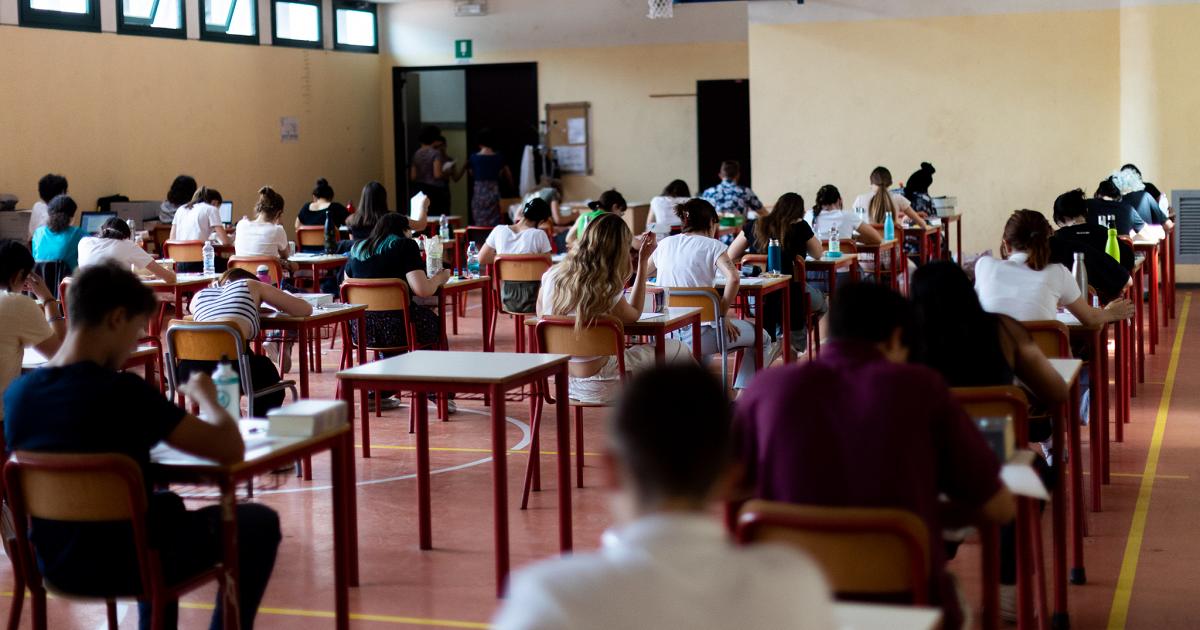Maturity pathways have now arrived in schools as an electronic package and students have their ideas on the full pathways. For prose writers, it is almost a plebiscite for the D'Annunzio-Pirandello couple, with Ungaretti, Svevo and Pascoli as possible replacements. For poetry, it is Ungaretti leads the way behind him, although Montale recovers a certain position. Matteotti, Oppenheimer and Lenin stay at the top of preferences for the “birthdays” section. Among the historic anniversaries, the First World War but he also makes his way landing in Normandy. Artificial intelligenceconflict Israeli-Palestinian and gender violence on the contrary, they are at the top of the list of favorite current affairs topics.
This is the traditional toto-traces from the day before the written test carried out by Skuola.net, developed thanks to the contribution of 1,500 graduates.
The first propositions that students will discover on the day of the first writing are those of “text analysis”. And here, at least in the heads of girls and boys, there is room for a very limited list of names. If the ministry focused on a 19th century author – remember that we can oscillate between the works produced from the Unification of Italy – the prediction is almost obligatory: 4 out of 10, further growth compared to the results of recent months, bets on Gabriele D'annunzio. But basically, it's like that every year. It remains to be seen whether, after decades of absence and insistence, graduates will finally be satisfied.
A similar dynamic is found in the presence of 20th century authors. The main graduate candidate is Luigi Pirandello, opted by more than a third (34%). And here too, expectations are very high at each maturity but, then, nothing ever happens: the last time it came out was in 2003. Will it be the right time? A few hours and we'll know.
Otherwise, as alternatives, for 800 would be welcome: Giovanni Verga (almost 1 in 3 indicates this), but this was proposed in 2022, or Alessandro Manzoni (voted by 18%) but, yes, this has never happened lately. Whereas in the 1900s, graduates would rejoice if it happened Italo Svevo (selected by 22% of the sample), released for the last time in 2009, or Italo Calvino (selected by 17%), who fell into the hands of high school graduates in 2015, perhaps too recently.
Let's move on to poetry, always for the typology “text analysis”, students remember a great classic from the first high school exam: Giuseppe Ungaretti, predicted 1 out of 4 – with odds, again, up from previous track totals – and offered in rapid sequence in 2006, 2011 and 2019. Following this trend, the time could be right for a new appearance. The same can be said for the poet in second place: Eugenio Montale, “adopted” by 14% of graduates and with whom their colleagues from 2004, 2008 and 2012 have already compared themselves. Otherwise, Giovanni Pascoli (12%), who left in 2022, and Giacomo Leopardi (11%), who having died before the unification of Italy, he does not fit perfectly into the list of authors suitable for analyzing the text.
But at the same time, most graduates are aware that the unknown awaits us. Which takes the form of the famous “unknown” author: for 1 in 2 people, it is almost fatal that this happens. On the contrary, the chances attributed to the “female” author are lower: only 1 in 4 people think that the entry of a woman into the analysis of the Maturità text is probable.
However, many graduate students often leave literature aside to try their hand at topics less related to academic curricula. Like the “argumentative text”, whose traces – in the end-of-studies packet there are three – they often contain references to birthdays and historical occasions. If this were to happen, the students affected by the Skuola.net survey are betting more and more heavily on the centenary of Matteotti's crime: today, more than 1 in 3 believe it, a month ago it was 1 in 4.
They placed themselves on the second step of the podium, but very far behind 110 years since the outbreak of the First World War, voted by (12%). But in third position is a subject until now almost ignored: the 80th anniversary of the Normandy landings (June 6, 1944), which reaches 10% of the consensus., perhaps motivated by the very recent celebrations. Just below, between 6% and 9%, we have: 20 years since the birth of Facebook, 35 years since the fall of the Berlin Wall, 75 years since the founding of NATO, 70 years of Italian television.
What if the date symbol was closely linked to a character? In this case, girls and boys reiterate what they have been saying in recent months: yesterday's favorite, for 30% of those directly interested, continues to be the physicist Robert Oppenheimer – which marks the 120th anniversary of his birth – probably launched by Oscar-winning biopic on his face but which brings with it a subject of undeniable topicality, such as the debate on the atomic bomb.
There is also a possible trace on the centenary of the death of Lenin: 1 in 5 people believe it. Sharing third place – with around 10% of the vote – are the 150th anniversary of the birth of Guglielmo Marconi and the 100th anniversary of the death of Franz Kafka.
We conclude with the current topic, another very popular type under review. Where yet another confirmation is recorded. The challenge is between a trio divided by a handful of voices: the first is the piece on “artificial intelligence and new digital borders” (24%), secondly that on the “conflict between Israel and Palestine” (21%), thirdly the double problem of “violence against women” and “gender equality” (18%). At the foot of the podium, but behind, the “War in Ukraine” (9%).
